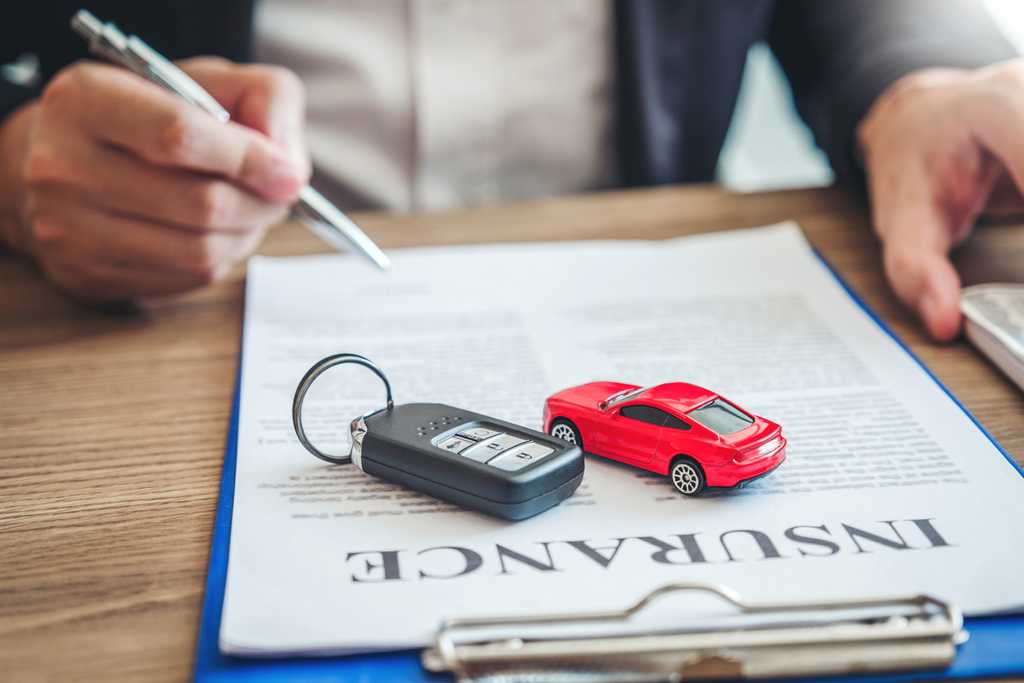To operate a vehicle, most states require drivers to have car insurance to protect others that they may hit while on the road. Many drivers choose to buy auto insurance that goes beyond the basics to protect themselves financially and to reduce inconvenience if they're in an accident. There are many different types of car insurance for you to choose from. In this article, we'll explain the most common coverage options available to help you decide which is best for your situation.
Types of car insurance
There are different types of car insurance available from most auto insurance companies. The most common auto insurance policies include one or more of these coverage options:
- Liability Insurance (BI/PD)
- Collision Insurance
- Comprehensive Insurance
- Medical Payments Insurance (MedPay)
- Personal Injury Protection Insurance (PIP)
- Uninsured/Underinsured Motorist Insurance (UM/UIM)
You can customize your coverage to meet your budget, protection concerns, and lifestyle choices. Adjusting the coverage limits and deductibles can also dramatically change the premiums charged. For example, if you want a comprehensive auto insurance policy, but the premiums are too high, consider increasing the deductible or lowering the coverage limit.
Liability Insurance (BI/PD)
Most states require drivers to have auto liability insurance to drive a car. For states that require liability insurance, you must purchase at least the minimum coverage limit to have valid coverage. This insurance protects a driver from paying for the damage they cause to other people and property in an accident. There are two types of liability insurance: bodily injury (BI) and property damage (PD).
Bodily injury liability coverage helps to pay for a person's injuries sustained in an accident caused by you. Property damage liability covers the costs of damage you caused to another vehicle or property in an accident. This coverage does not protect you or your vehicle.
Collision Insurance
Collision insurance covers damages to your vehicle when you are in an accident with another vehicle or object, such as a fence or a building. This coverage pays to repair or replace your vehicle after an accident. Your deductible is subtracted from your benefits before they are paid to you. Because of this, it is wise to have an emergency fund to cover that portion of the bill.
While collision coverage is optional in most states, if you have a loan against your vehicle, the leaseholder or lender may require it. Additionally, the lender is named as an additional insured to protect their financial interest in your car.
Comprehensive Insurance
When you have comprehensive coverage, your vehicle is protected against damage from theft, fire, hail, and vandalism. Comprehensive coverage generally covers damage while your vehicle is parked to your vehicle when it is parked. This coverage is typically optional, but your lender may require it.
Medical Payments Insurance (MedPay)
Medical payments insurance covers injuries sustained by the driver or their passengers while involved in a covered accident. Covered expenses can include hospital visits, surgery, X-rays, and other related medical expenses. Only three states (Maine, New Hampshire, Pennsylvania) currently require this coverage. It is optional in the rest.
Personal Injury Protection Insurance (PIP)
Personal injury protection insurance, or PIP, is similar to MedPay insurance. It covers the medical expenses of the driver and their passengers in case of an accident. While MedPay focuses solely on medical expenses, PIP also helps to cover other expenses incurred due to injuries, such as child care expenses or lost income. There are currently 12 states that require PIP insurance (e.g.: Delaware, Florida, Kansas), while 31 do not offer it.
Uninsured/Underinsured Motorist Insurance (UM/UIM)
Even though you have insurance coverage, that doesn't mean that someone who causes an accident is. Uninsured/Underinsured Motorist Insurance protects you in case the person who caused the accident does not have insurance or if their coverage limits are less than the damage caused. UM/UIM insurance is mandatory in 22 states but is optional in the rest.
Other Types Of Car Insurance
In addition to the basic forms of car insurance, you can purchase additional riders to complete your coverage. These additional policy options generally focus on specific coverage issues that drivers have. Each additional coverage that you buy increases your premiums, so weigh the cost versus benefit before adding them
Rental reimbursement insurance
Rental reimbursement insurance covers renting a vehicle while yours is repaired after an accident. This protection is also known as auto rental coverage. With most insurers, you can choose the daily reimbursement limit which can help to keep the costs down.
Gap Insurance
Gap insurance is an additional type of insurance that covers any difference between what you owe and the amount you receive from your insurer in case your vehicle is totaled or stolen. This insurance coverage is popular for new vehicle purchases since the value of the car can drop considerably when you drive it off the lot.
If you purchase this insurance, monitor your car's value versus the loan balance. This way you can eliminate the coverage once the amount owed is less than the car's value.
New-Car Replacement Insurance
When an accident totals your car, the insurance company doesn't write you a check for what you paid for the car. Instead, they pay you based on what the car is worth today, minus your deductible. With new car replacement insurance, if your car is two model years old or less, they will replace the car completely. This is valuable coverage when you have a brand new car, but you can eliminate it once your car is older.
Roadside assistance
This coverage provides the same benefits that you may have from other services or memberships. You can pay per use or sign up for an annual membership that includes certain benefits at no extra charge. Roadside assistance includes towing, tire changes, jump starts, lockout assistance, and gas or oil delivery. Before signing up for this insurance, make sure that you're not paying for something that you already have.
Rideshare Insurance
Auto insurance policies cover you when you drive for personal use. Your policy may not protect you when driving for ridesharing companies (like Uber or Lyft) or performing other "gig economy" jobs with your car. Many rideshare companies provide insurance protection for their drivers under state law, but rideshare insurance offers peace of mind to ensure that you're protected. You don't want to be held liable for injury to a driver or passenger or for damage to property if you aren't protected.
Sound system insurance
Most drivers keep the sound systems that come factory pre-installed when they buy their car. However, some owners modify their car's radio, speakers, and other components with thousands of dollars worth of upgrades. Normal auto insurance does not include coverage for these upgrades, so it makes sense to purchase additional insurance to protect your investment.
Personal umbrella insurance
Personal umbrella insurance is a type of liability insurance that extends your protection above and beyond your home or auto insurance policy limits. Whether you are the driver or someone else is at fault, an umbrella policy can provide protection for bodily injury, property damage, and legal fees. These policies offer protection against significant claims that are in excess of your coverage limits. Generally, these policies are sold in increments of millions of dollars worth of coverage.
Classic car insurance
Generally, the older the vehicle, the lower its value. However, classic cars tend to increase in value over time due to their condition, rarity and uniqueness, and appeal to collectors. With these vehicles, you need a special type of coverage that is available from classic car insurance. That way, if there is ever a claim, you'll receive the true value of your vehicle. However, be aware that these policies often include restrictions on its use and storage in order to receive benefits.
The bottom line
In most states, you must have auto insurance in order to drive. Some drivers choose the bare minimum limits to meet legal requirements, while others add more coverage to protect themselves and those around them. When you have a newer vehicle, it makes sense to have full protection since the replacement cost is so high. However, as your vehicle declines in value, you can reduce some coverage amounts because the premiums don't make sense.
If you're looking to save money on your auto policy, consider increasing your deductibles before eliminating any coverages. You can also save money by asking your insurer if you qualify for additional discounts. Shopping your policy every one-to-two years with other auto insurance carriers can also lower your premiums.
Frequently asked questions
What are the benefits of having car insurance?
Before heading out for a drive, it is important to have car insurance to protect you, your passengers, and anyone that you may encounter on the road. Comprehensive coverage will cover damages to the insured's vehicle caused by incidents other than a collision with another object, vandalism, theft, or fire. Collision coverage will cover damages to the insured's vehicle arising from contact with another object, like an animal or pothole.
What are the risks of not having car insurance?
If you are in an accident or are caught driving without insurance, you may receive a ticket, even if it is not your fault. In some situations, you may go to jail. Additionally, it is likely that the police will impound your vehicle and they may revoke your driver’s license. This means being unable to drive altogether, which can have a negative impact on your day-to-day life. Not having car insurance also means that you have no financial protection against lawsuits for damage caused while operating the vehicle.
How much does auto insurance cost?
Car insurance rates vary depending on the type of insurance that you buy, your coverage limits, and deductibles. Adding on extra coverages, like rental car reimbursement and new-car replacement, increase your premiums even further. Most states require drivers to have collision coverage to protect other drivers in case you hit them. On average, you'll pay about $60 per month for minimum coverage if you have a clean driving record.

